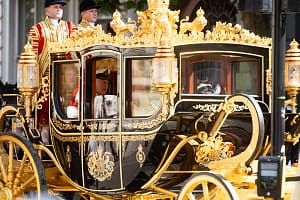Liberty after the Lockdown, a new paper by Christopher Snowdon, Head of Lifestyle Economics at the Institute of Economic Affairs, examines the laws and regulations introduced in late March, and what needs to be done to ensure freedom is not permanently diminished as a result of the government’s response to the pandemic.
The 356-page Coronavirus Act handed the government extraordinary powers to restrict liberty in the name of slowing the spread of Covid-19, ones that would be “beyond the pale” in normal times. If just a fraction were kept in place after the crisis has passed it would be a serious blow to civil liberties.
When the lockdown was announced on 23 March it was done so to avoid overwhelming the NHS; there was no suggestion that the lockdown should remain in place until the virus was stamped out entirely, nor until other countries had eradicated it, nor until a vaccine was available.
According to Liberty after the Lockdown, there is now a danger of goalposts being moved. The government has set out five tests that need to be met before the lockdown can be lifted, one of which states that it must be “confident that any adjustments to the current measures will not risk a second peak of infections that overwhelm the NHS.”
While this statement is open to interpretation, it could imply that a second wave must be ruled out before the lockdown can be ended. Most epidemiologists believe that a second wave of some magnitude is inevitable without a vaccine developed and distributed.
Further, the Coronavirus Act contains a sunset clause that will make the measures expire after two years. As Amnesty International and Big Brother Watch have both said, this seems an excessively long period of time. A further clause requires the measures to be reviewed, debated and voted on in Parliament every six months.
While a positive narrative can be constructed if the facts are carefully selected, we should remind ourselves that whatever benefits inadvertently emerge from natural and man made crises tend to be comfortably outweighed by the damage to life, health and well being.
It should not be surprising that a population put under house arrest experiences fewer burglaries, nor that freezing economic activity leads to less pollution, nor that banning the sale of alcohol leads to less alcohol being consumed. None of this makes the case for restricting personal and economic freedom stronger. As the report states: “People who are not free cannot make bad choices.”
Christopher Snowdon, Head of Lifestyle Economics at the Institute of Economic Affairs and author of Liberty after the Lockdown said, “The public understands why there has been an almost totalitarian response to COVID-19, but having temporarily sacrificed basic freedoms there must be no moving of the goalposts. The stated aim of the lockdown was to prevent the NHS being overwhelmed. Mission accomplished.
“The lockdown has come at a huge economic cost and has indirectly caused many deaths. It should be lifted in a matter of days rather than weeks.”






Leave a Comment